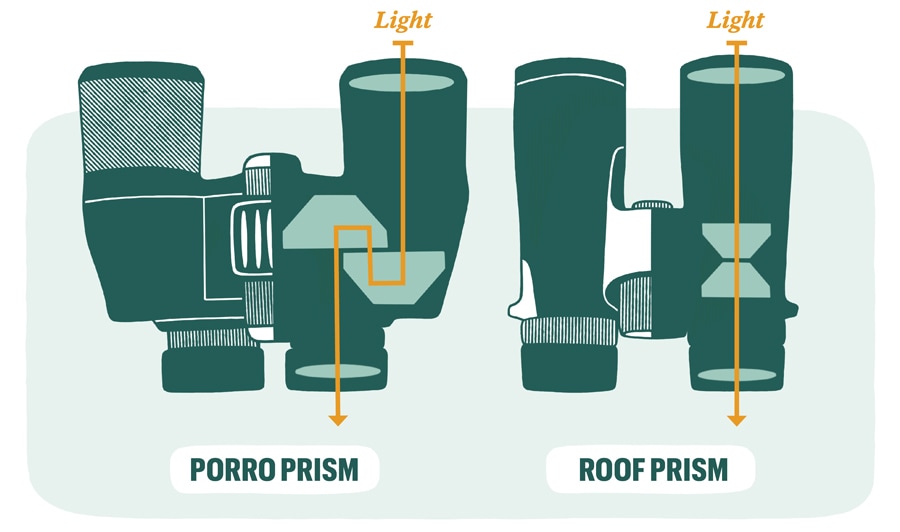The Importance of Field Glasses in Education and Scientific Research Study: How These Optical Instruments Add To Discovering and Exploration
The combination of field glasses into instructional setups and clinical study is often ignored, yet their payment to enhancing observational skills is considerable. In self-controls varying from environmental scientific research to astronomy, field glasses serve as important tools that advertise questions and critical reasoning.
Enhancing Observational Abilities
In academic and study settings, making use of field glasses significantly improves empirical skills amongst pupils and experts alike. These optical instruments promote a deeper understanding of distant subjects, enabling users to observe details that would certainly or else stay hidden. By using field glasses, learners can take a look at wild animals, expensive sensations, and geological formations, fostering a more profound connection to the subject issue.
Field glasses work as vital tools in area researches, urging students to involve actively with their atmosphere. Through boosted observation, they can collect information better, leading to enhanced logical skills. This hands-on experience permits for the advancement of important reasoning, as students should translate what they see and associate it to academic knowledge.

Bridging Concept and Practice
Observational abilities developed via making use of binoculars normally lead to a more extensive assimilation of theoretical expertise with sensible application. By taking part in direct monitoring, learners can transform abstract principles into substantial experiences. This synergy cultivates a much deeper understanding of clinical concepts as trainees connect academic structures with real-world sensations.
For circumstances, when researching bird biology, trainees can apply their understanding of bird anatomy and actions with the lens of field glasses, observing traits such as plumage variant, feeding practices, and migratory patterns. This direct engagement not only enhances theoretical ideas but additionally cultivates vital reasoning and analytical abilities.
In addition, the use of field glasses urges learners to formulate hypotheses based upon their monitorings, therefore improving their scientific questions skills. They can proactively check these theories in the area, causing a more experiential discovering atmosphere that promotes interest and expedition.
Essentially, field glasses work as a vital tool in linking the space in between class discovering and fieldwork - Binoculars. They empower pupils to become active individuals in their education and learning, motivating a holistic method to comprehending the environment and its intricacies. Thus, the combination of concept and technique is vital for fostering notified and engaged learners
Applications in Environmental Science
Making use of field glasses in ecological science enhances the capability to observe and examine ecological communities with better accuracy. These optical tools are important for performing field research studies, allowing researchers to keep track of wildlife populations, analyze plant health and wellness, and review environment conditions without disrupting the native environment. Field glasses assist in the identification of types at numerous distances, allowing scientists to collect important data on biodiversity and behavior.
In ecological research, binoculars are crucial tools for ornithologists examining bird behavior and movement patterns. They enable scientists to videotape monitorings over extended periods, adding to beneficial longitudinal research studies more information - Binoculars. In addition, field glasses play a crucial function in habitat evaluations, as they enable the in-depth monitoring of plant areas and their communications within ecological communities
Environmental instructors additionally take advantage of binoculars, as these tools improve experiential understanding chances. Pupils can engage directly with their environments, cultivating a deeper recognition for environmental systems. By including binoculars right into curricula, instructors can influence the future generation of environmental scientists.
Duty in Astronomy Education And Learning
Using field glasses in astronomy education and learning offers an accessible gateway for pupils and enthusiasts to explore celestial sensations (Binoculars). Unlike large telescopes, field glasses are mobile, straightforward, and reasonably low-cost, making them an excellent introductory device for observing the evening skies. Students can quickly involve with the cosmos, cultivating a hands-on learning experience that enhances their understanding of expensive concepts
Binoculars allow customers to observe a variety of celestial objects, consisting of the Moon, worlds, and star collections. Importantly, field glasses offer as a content bridge to more complex huge instruments, offering foundational experiences that can trigger much deeper passion in try this website the area.
In educational settings, led binocular sessions can advertise team partnership and conversation, enhancing the learning experience. The common experience of observing celestial spheres can grow a feeling of neighborhood amongst learners. Generally, field glasses play an important role in demystifying astronomy, making it approachable and interesting for individuals at all levels of education and learning.

Motivating Inquisitiveness and Questions
Field glasses not only facilitate the observation of celestial sensations yet likewise spark a feeling of curiosity and inquiry amongst pupils. By supplying a closer check out distant objects, field glasses urge learners to ask questions and explore the atmosphere around them. This device transforms passive learning right into an energetic, engaging experience, fostering a deeper understanding of scientific ideas.
When pupils make use of binoculars to observe wild animals, landscapes, or astronomical items, they create empirical abilities that are crucial for scientific inquiry. The act of concentrating on specific details triggers them to formulate theories, carry out investigations, and draw verdicts based upon their observations. This procedure not just improves their vital assuming capacities but additionally supports a long-lasting interest for expedition.
Moreover, field glasses can connect the space in between academic understanding and real-world application. Eventually, the use of field glasses in educational settings offers as a catalyst for curiosity, equipping pupils to seek knowledge with excitement and fostering a sense of marvel about the world around them.
Conclusion
In recap, binoculars act as vital tools in education and scientific research study, substantially enhancing observational abilities while bridging the void in between theoretical understanding and practical application. Their varied applications in areas such as environmental science and astronomy emphasize their importance in promoting interest and questions amongst trainees. By promoting thorough assessments of far-off subjects, field glasses not only influence the future generation of researchers yet additionally grow a profound gratitude for exploration and the clinical technique.